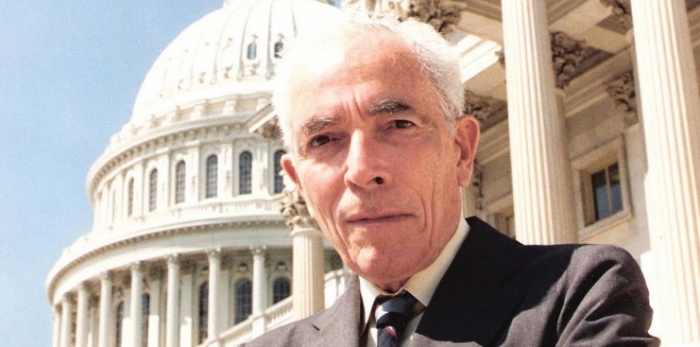Beginning in 1960, Sen. Claiborne de Borda Pell was elected to six terms representing his home state of Rhode Island. During his years of service, he made historic contributions in international relations, higher education, environmental protection and global resource preservation, and government support of the arts, humanities, libraries and museums. Upon his retirement, Pell concluded one of the longest and most distinguished careers in the history of the U.S. Senate.
Pell is best known for the Pell Grant legislation that provides direct federal funds for low- and middle-income students seeking higher education. Since the program was created in 1972, more than 100 million Pell Grants have been awarded. As chairman of the Senate subcommittee on education for most of his career, Pell also authored major legislation increasing federal financial assistance to elementary and secondary schools and expanding federal education programs. He was the driving force behind the establishment of the National Endowment for the Arts and the National Endowment for the Humanities.
Among hundreds of other legislative initiatives, Pell sponsored the High Speed Ground Transportation Act, which made vast improvements in rail travel in the northeast corridor of the United States and stimulated the creation of Amtrak. He also sponsored the Sea Grant College Program, which greatly expanded oceanographic study, and supported the United Nations Environment Programme.
Pell was present at the inception of the United Nations in 1945 and remained committed to the U.N.’s founding principles: the international rule of law and basic human rights. A member of the Senate Foreign Relations Committee for 34 years, he served as its chair or ranking member for 17 years. Pell was the only senator to serve as a delegate to both the first World Conference on the Environment in 1972 and the 1992 U.N. Conference on Environment and Development. He championed human rights and democracy and was a passionate advocate for persecuted people throughout the world.

